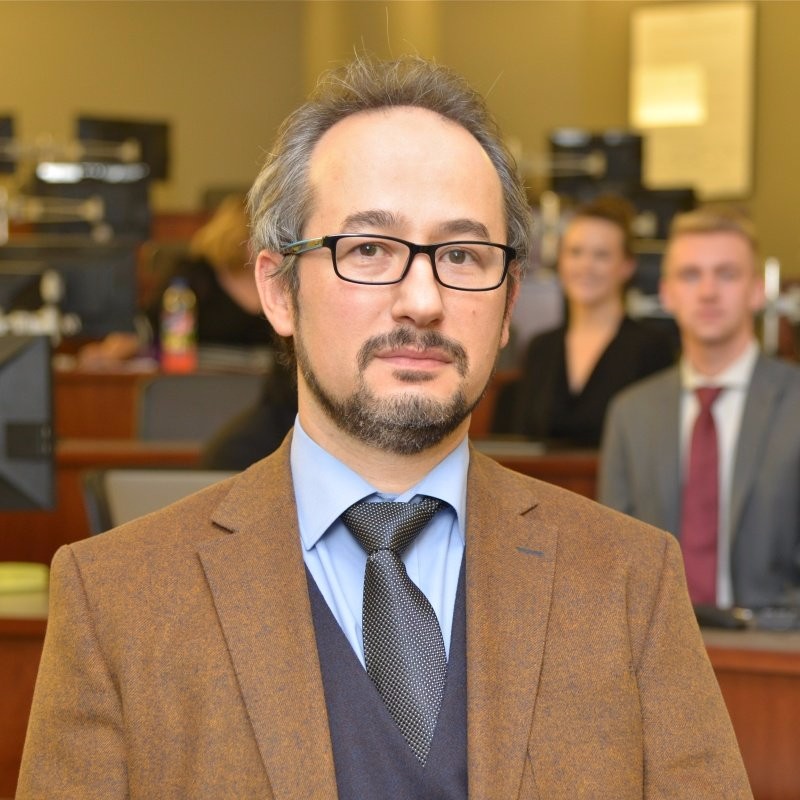The opportunity to blend theory and practice in the classroom is what led Vahap Uysal to the Driehaus College of Business at DePaul University.

The associate professor of finance teaches a popular investment seminar that uses an actual stock portfolio to challenge students to analyze securities and recommend what to buy and sell. A licensed trader then executes the decisions made by the students.
Uysal's research takes a similar real-world approach, delving into corporate social responsibility, mergers and acquisitions and other issues relevant to the finance industry.
A native of Turkey, Uysal joined the college's full-time faculty last fall from the University of Oklahoma, where he was the student investment fund professor. Below he shares more about his teaching and research at DePaul.
Why did you decide to pursue a teaching career?
I have a passion to contribute to the society in which I live. The best way to do this is to educate young generations and to inspire them to do good for themselves and for the society. Teaching at a university is the best way to achieve this goal.
What about DePaul and its business school made you want to join our faculty?
I am drawn to teaching at DePaul because of the emphasis on engaging theory with practice. Collegiality and a socially responsible culture have also made DePaul my second home.
Tell us how Finance 395/595 Student Investment Seminar prepares students for the real world?
The Finance 395/595 Student Investment Seminar course is intended to provide students with a rich learning and theory application opportunity focusing on financial investing. The learning module is built upon the fusion of the academic knowledge that students have gained from advanced courses in investments and corporate finance with the actual practice of analyzing securities and making and defending buy and sell recommendations for a 'live' portfolio. The course is unique to collegiate business education and provides students with a definite competitive edge in the job market.
What are you researching?
Recently, I have developed an interest in the role of corporate social responsibility on investor and corporate decisions. In a joint paper with Texas A&M Professor Audra Boone, we examine the role of a firm's environmental performance on acquisition decisions.
We find that 'toxic' firms — firms with negative environmental performance — have a lower associated probability of being acquired, even after controlling for firm and industry characteristics. We also document that acquirers account for reputation in their selection of target firms and are likely to acquire firms with similar environmental reputations. Most notably, 'green' firms — firms with positive environmental performance in our sample — never acquire toxic firms, though they do acquire firms with gray or neutral environmental performances. Acquirers that buy firms with differing environmental reputations use a higher percentage of stock in their acquisition offers. We further show that the returns to acquirers are more negative when they acquire firms outside of their area, which suggests that the acquirers lose value, on average, with these acquisitions. This negative effect is even more pronounced when an acquirer with an established green reputation acquires a non-green target.
Collectively, these findings support the view that firms are concerned about their environmental reputations and account for the reputations of targets in planning and structuring acquisitions.
What do you do in your spare time?
I love reading and spending time with my children. I'm also a competitive chess player.
Learn more about earning a degree in finance at DePaul: